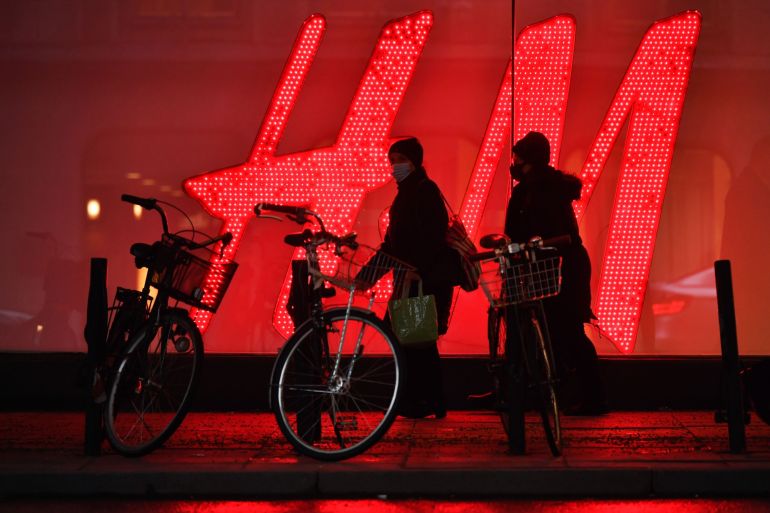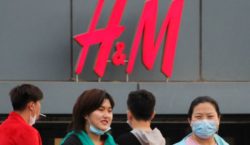
The Swedish fashion giant H&M has experienced a comprehensive boycott in China that has worsened over the weekend and also spread to other clothing manufacturers. But why does the boycott of H&M have such broad support in China? According to Swedish journalist Jojje Olsson’s recent article in Swedish daily, Expressen, it’s because the company opposes forced labor.
The story began over a year ago when H&M on their website expressed concern about reports of forced labor among ethnic minorities in the Xinjiang region’s important cotton industry. Last week, the Communist Party’s youth union launched the campaign against H&M stating on the Chinese microblog Sina Weibo, “Spread rumors of boycotting Xinjiang cotton, while also wanting to make money in China? Wishful thinking! ” The fact that the statement had a little over a year on its neck created a certain amount of confusion. But according to Jojje Olsson, it soon became clear that the calls for a boycott of H&M are part of a larger political game.
H&M can no longer be found on Alibaba, JD.com, or other leading Chinese online stores and the company’s app has also been removed on all Huawei and Xiaomi phones. Several physical stores have closed or had their red logo removed and from Hong Kong in the south to Beijing in the north, demonstrations are taking place outside H & M’s stores demanding apologies or attempts to stop customers from entering and shopping. In addition, the map service for the leading Chinese search engine Baidu also no longer provides any hits during a search on H&M. It is also not possible to order a car to the shops using Didi or other local taxi apps.
“Although the statement has been on (H & M’s) official website for over a year, it has received renewed attention after the EU recently issued sanctions related to Xinjiang, which sends strong signals of interference in China’s internal affairs,” the Global Times explained, published by the party newspaper Folkets Dagblad, this week.
The cotton industry is one of the most important industries in this vast region and more than five million tonnes of cotton are produced annually in Xinjiang, which is close to 90 percent of China’s total production. Clothing from H&M has within the last few years been linked to companies criticized for human rights violations of ethnic minorities including the company Huafu Fashion, which in 2019 was presented in a Wall Street Journal survey of forced labor among the region’s yarn manufacturers. Again in March 2020, the think tank Australian Strategic Policy Institute (ASPI) released a report entitled “Uighurs for sale” where H&M as one of 83 large international companies, again was singled out for using former prisoners of war in Xinjiang to manufacture their products, albeit through a network of subcontractors so complicated that many companies probably lacked knowledge of the matter.
The statement that prompted a boycott of H&M was issued just after ASPI’s report, that is, over a year ago and although the timing can be explained by a worsening geopolitical situation, many other clothing manufacturers had made similar statements at the same time.
According to the magazine Foreign Policy, one of the reasons why H&M ended up in the crosshairs may be the generally bad relationship between China and Sweden. Another reason may be that H&M as one of the first companies acted by terminating all cooperation with Huafu Fashion in September last year.
Either way, more companies have had similar problems during the week and the call for a boycott has gone from only applying to H&M to almost all clothing manufacturers who at some point have expressed concern about the reports of forced labor in Xinjiang’s cotton industry.
The boycott is broad and has great support from the public. Immediately after the outcome of the Chinese Communist Party’s Youth League, movie star Huang Xuan announced that he was terminating his partnership with H&M. Huang Xuan, who until recently was the Swedish clothing manufacturer’s brand ambassador to China, added that he opposes all attempts to tarnish and spread rumors about China. Singer Victoria Song, also an ambassador for H&M, did the same shortly afterward.


